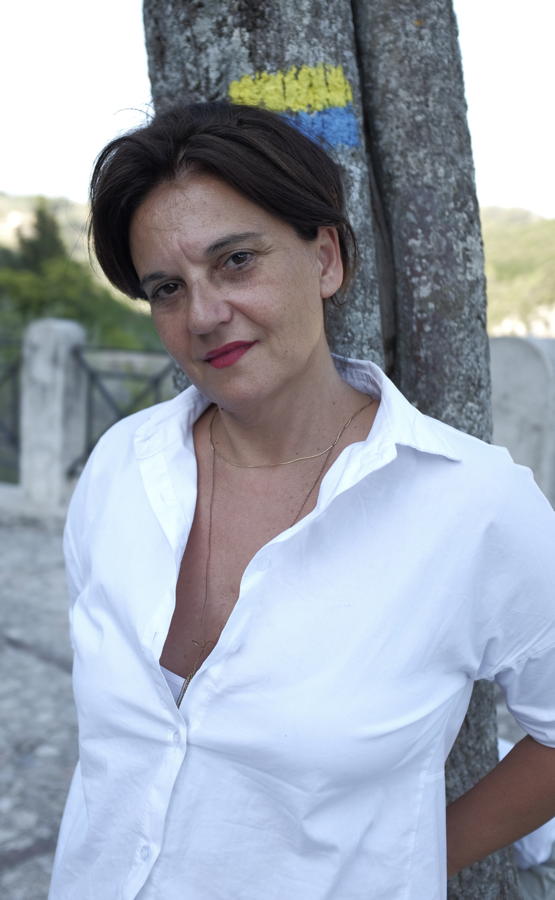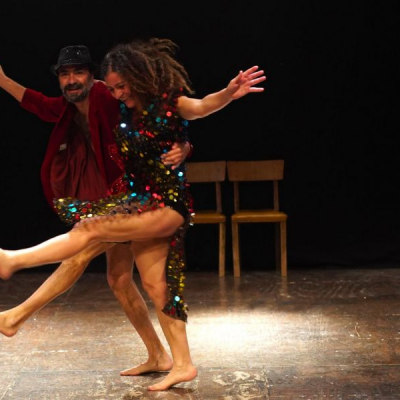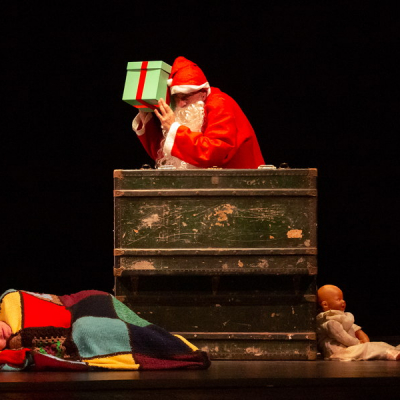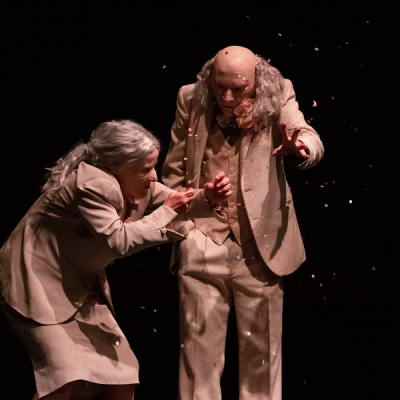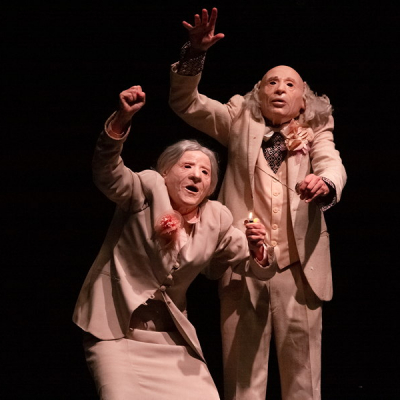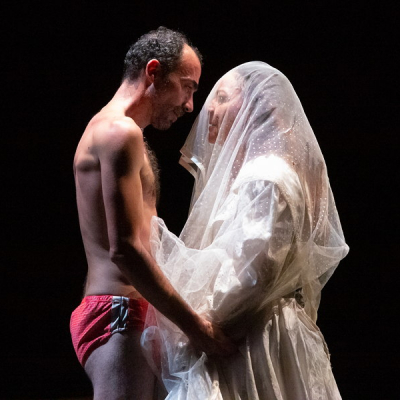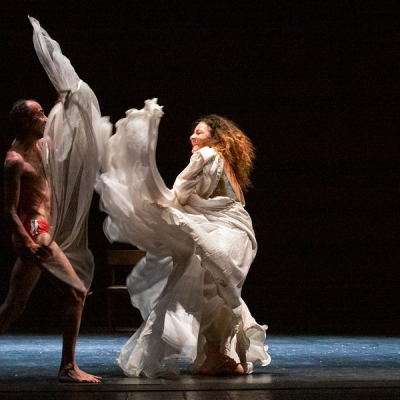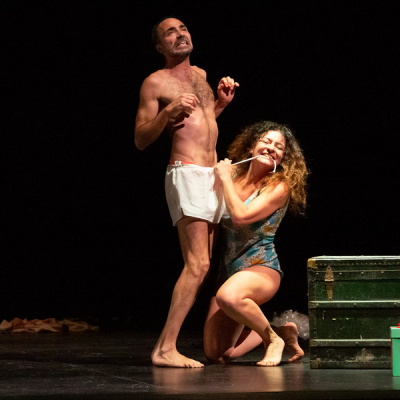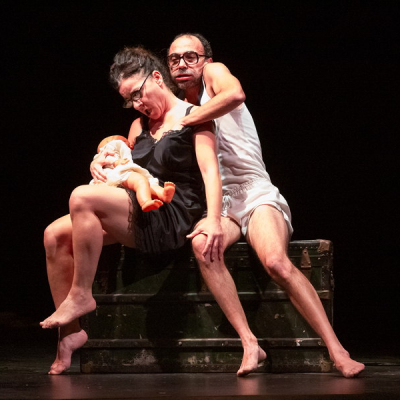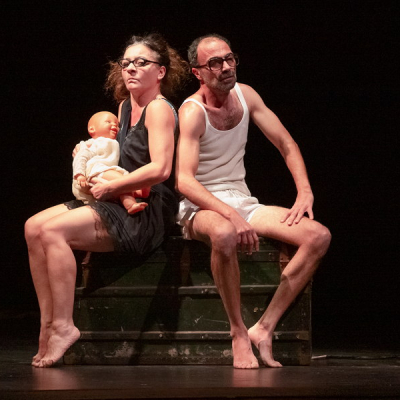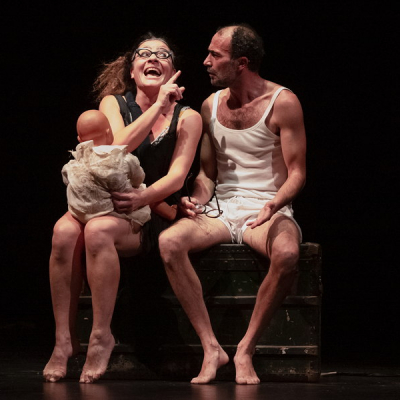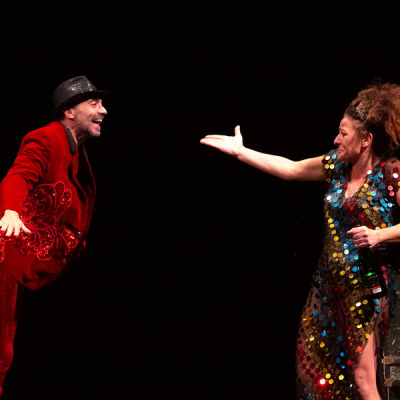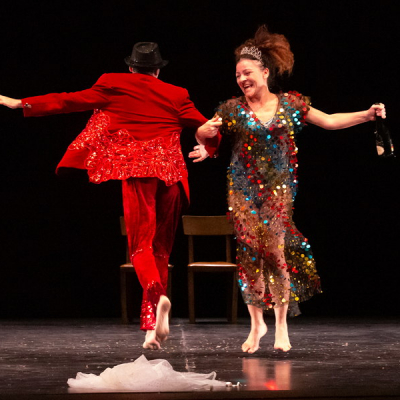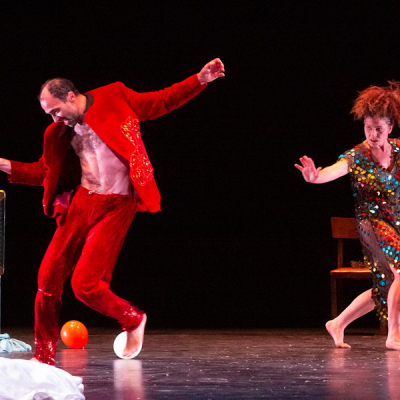Blackcaps’ tango /Il tango delle capinere / 14
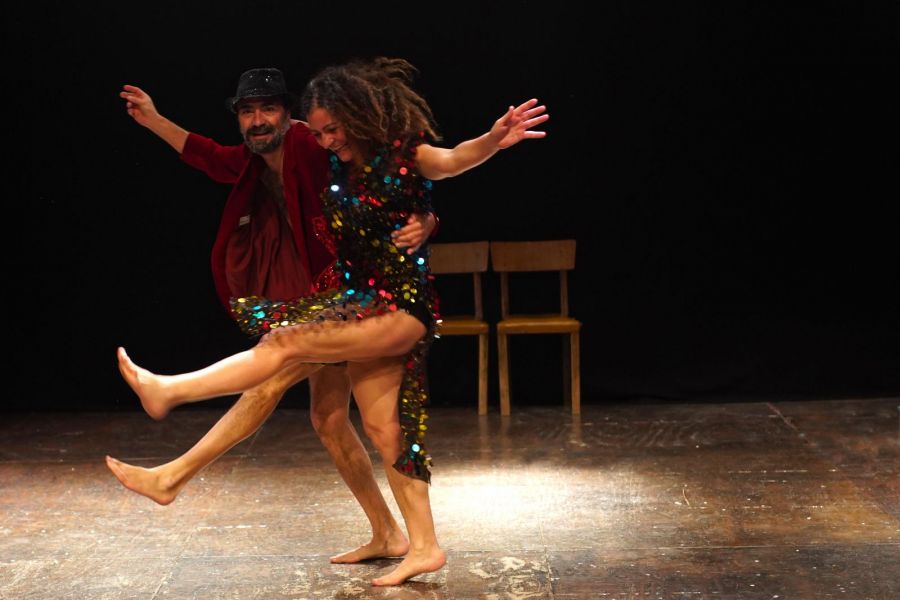
A production by Atto Unico, Italy
Director: Dante Emma
Italian with Hungarian and English subtitles
1 hours, without breaks.
An old woman bends over an open chest looking for something. Music plays and an old man emerges from another chest. He looks at her and smiles lovingly. She is wearing old festive clothes, worn by time. He steps closer. He hugs her. She rests her head on his shoulder. They dance. He strokes her. They kiss. She holds him by the arm to help keep his balance. He is happy. She is happy too, blowing her nose and scratching her thigh. He takes a pocket watch out of his coat: five... four... three... two... one... and when the clock strikes midnight, he pops a small firecracker. They kiss. He takes a handful of confetti out of his pocket. He tosses it solemnly into the air. He looks at her. Happy New Year, my love! She takes a bridal veil out of the chest and winds up a small music box. The man and woman are younger now, they put on their glasses and start dancing again. They dance their love story backwards to the old songs, celebrating the New Year.
Blackcaps' Tango is the dance of two lovers' lives, a deeper version of the Ballarini episode from The Spectacles Trilogy. This time round, Blackcaps' Tango becomes a performance in its own right, a mosaic of memories that make loneliness more bearable for a woman in the last phase of her life.
Foto credit: Carmine Maringola
Actors
Sabino Civilleri, Manuela Lo Sicco
Assistant director: Daniela Mangiacavallo
Lighting design: Cristian Zucaro
Arrangement: Daniela Gusmano
Co-production partners: Teatro Biondo Palermo / Emilia Romagna Teatro ERT - Teatro Nazionale / Teatro di Roma - Teatro Nazionale / Carnezzeria / Théâtre des 13 vents, Centre dramatique national Montpellier / MA scène nationale - Pays de Montbéliard
Dante Emma


